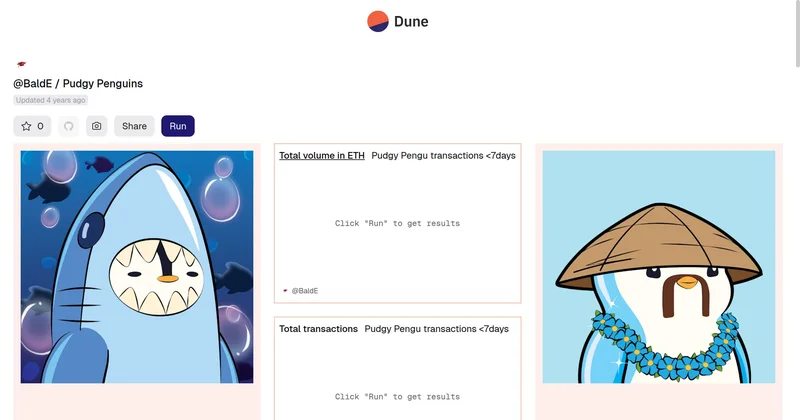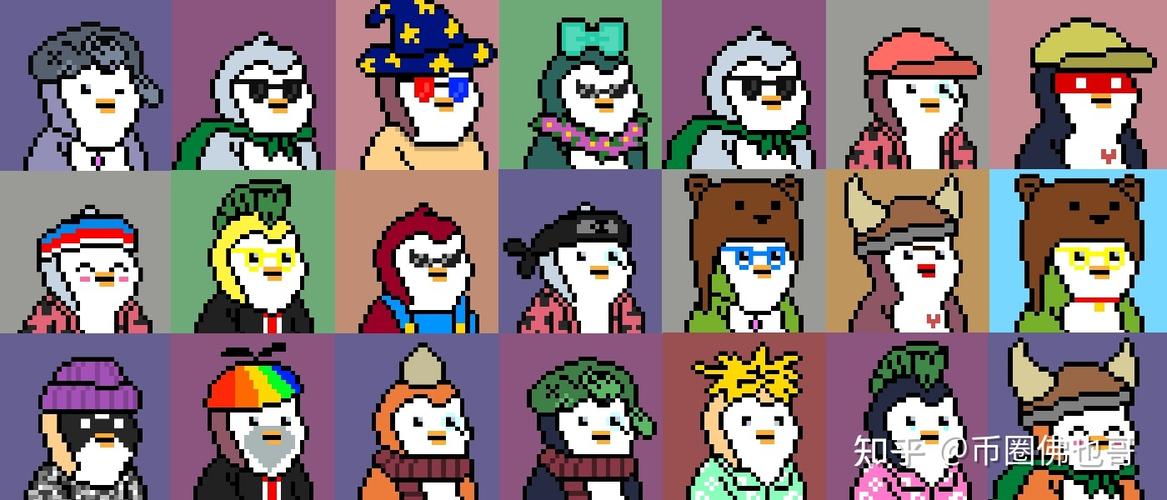Article Directory
Beyond the Hype: Is Pudgy Penguins Secretly Building the Next Disney on the Blockchain?
Let's be honest. When most of us hear the term "meme coin," our eyes glaze over. We picture a chaotic digital casino, a whirlwind of dog-themed tokens and fleeting internet jokes fueled by pure speculation. It’s a world that feels, for the most part, disconnected from reality. But every once in a while, a project emerges from that chaos that forces you to sit up and pay attention. Something that uses the Trojan horse of a meme to smuggle a genuinely revolutionary idea into the mainstream.
I believe we’re seeing that happen right now with Pudgy Penguins and its token, PENGU.
On the surface, it has all the trappings of a classic meme project: a cute avatar, a skyrocketing community, and dizzying social media metrics—over 200 billion content views in a month is nothing to sneeze at. But if you look just beneath the surface, past the price charts and the ascending triangles that have traders buzzing, you find something far more profound. You find the blueprint for a new kind of global entertainment company. And when I first read the CEO’s vision, I honestly just sat back in my chair, speechless. Because if he’s right, this isn’t just another token. It’s a paradigm shift in how brands are built.
The Physical-Digital Flywheel
Luca Netz, the CEO of Pudgy Penguins, has made some audacious statements. He’s not shy about his goal to become "the next Disney and Netflix," an ambition he shared in an interview titled Luca Netz Pudgy Penguins CEO "Will become the next Disney and Netflix" [Cointerview]. It’s the kind of ambition that’s easy to dismiss as hyperbole, until you dig into the mechanics of what they’re actually building. Unlike countless other projects that exist solely as lines of code on a blockchain, Pudgy Penguins has built a bridge to the real world. A very profitable one.
They sell physical toys. They license their intellectual property (IP). They have partnerships with Walmart, NASCAR, and Lotte. They’re targeting $60 million in revenue in 2025 and $120 million the year after. This is where it gets brilliant. Instead of that revenue just going back into the corporate coffers, a portion of it is used to buy back and burn PENGU tokens on-chain.
Let me break that down with a clarifying self-correction. "Token burns" sound technical, but the concept is beautifully simple: it means they are taking real-world profits from a toy sold at Walmart and using that money to permanently remove some of the community's digital tokens from circulation. This makes the remaining tokens scarcer and, in theory, more valuable.

This creates a self-reinforcing loop, a flywheel. The stronger the brand and its physical products, the more revenue is generated. The more revenue, the more tokens are burned. The more tokens burned, the more value is returned to the community of holders who believe in the brand. It’s like if every time you bought a Mickey Mouse plush, Disney used a piece of the profit to buy back and retire a handful of its own stock shares, directly benefiting every shareholder. Now, imagine if the shareholders were also the biggest fans. That’s the model here. It transforms consumers into owners.
What does it mean for a brand to be built not just for a community, but with one, where everyone is financially aligned? Could this be the model that finally cracks the code on sustainable, community-owned IP?
The Great Crossover Event is Already Happening
This isn't just a theoretical model playing out in a crypto niche; the traditional world is already taking notice. The most powerful signal is the application for a spot PENGU ETF by Canary Capital. An ETF, or Exchange-Traded Fund, is a mainstream investment vehicle. It’s a signal that serious financial players are looking at Pudgy Penguins not as a fleeting meme, but as a legitimate asset class with a durable brand.
Then there's the partnership with Sharps Technology (STSS), a NASDAQ-listed company. This isn't just a collaboration, it's a statement—it's the traditional financial world reaching across the aisle to shake hands with a Web3 cultural phenomenon, and that kind of crossover is what signals a genuine paradigm shift is underway, a move from the fringes to the center. We're watching the lines blur between digital culture and institutional finance in real time.
This is the kind of breakthrough that reminds me why I got into this field in the first place. It’s a fusion of culture, technology, and economics that feels genuinely new. We’re moving beyond simply creating digital collectibles and into a world where a digital community can bootstrap a global entertainment franchise.
Of course, we have to be clear-eyed. This is still a nascent, volatile space. The risks are real, and the road to becoming the next Disney is littered with forgotten projects. There’s a profound responsibility that comes with building in this new frontier. But to dismiss the ambition because of the risk is to miss the point entirely. This is what innovation looks like in its early stages: messy, audacious, and electrifying. The question isn't whether it's risky. The question is whether the model itself represents a fundamental upgrade on what came before. I believe it does.
A New Blueprint for a Brand
When you strip it all away, what you’re left with is a profound and elegant idea. For a century, the blueprint for building an IP empire was top-down. A corporation created a character, sold it to the masses, and reaped the rewards. Pudgy Penguins is flipping that script. It’s proving that you can build from the bottom up, with a global community as your co-founders and co-owners. The token isn't the product; the token is the mechanism that binds the community to the brand’s success. This isn't just about a cute penguin. It's about a new form of ownership, a new way to build, and a glimpse into a future where the line between fan and owner disappears completely.




